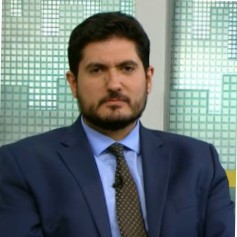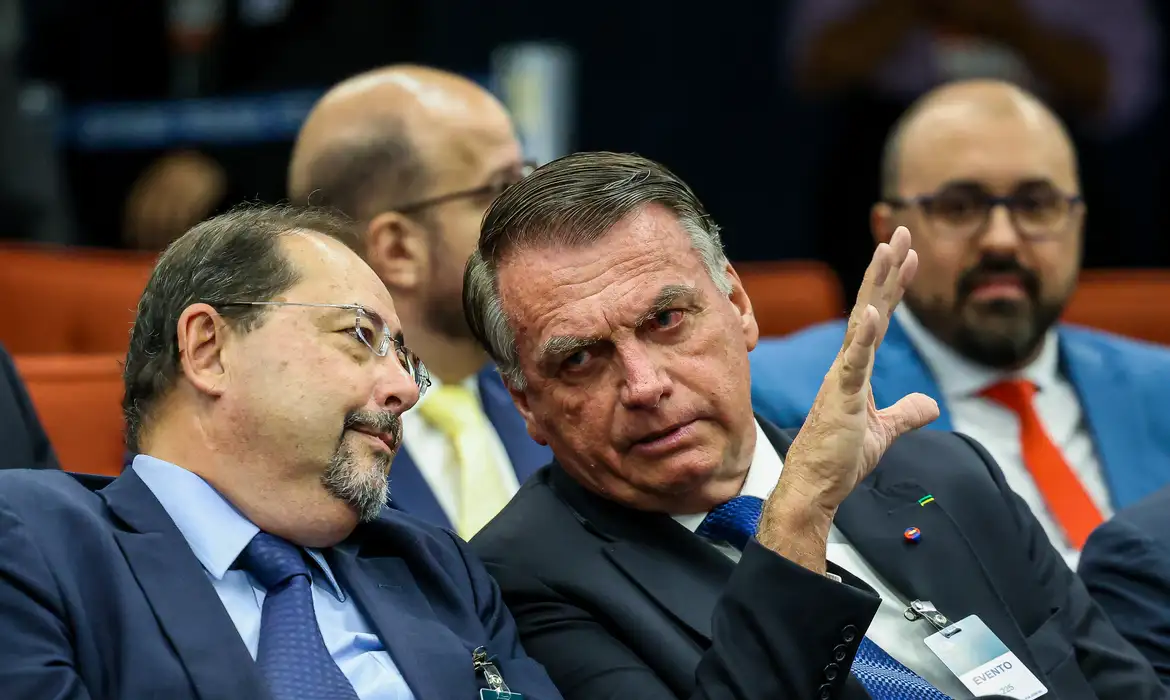Brazil’s Supreme Court decided Wednesday that former President Jair Bolsonaro and close allies will stand trial for allegedly plotting a coup to overturn the 2022 election, which he lost to his opponent and current President Luiz Inácio Lula da Silva.
Seven others will stand trial along with Bolsonaro: Alexandre Ramagem (a lawmaker and former head of Brazil’s intelligence agency), Almir Garnier (former Navy commander), Anderson Torres (former Minister of Justice), Augusto Heleno (former institutional security minister), Mauro Cid (former aide-de-camp to Bolsonaro), Paulo Sérgio Nogueira (former Minister of Defense) and Walter Braga Netto (former chief of staff, former Minister of Defense and Bolsonaro’s running mate in 2022).
Bolsonaro has denied wrongdoing, calling the trial a politicized effort to keep him from returning to power in the 2026 election. He is currently banned from being a candidate in that race due to a separate set of violations.
AQ asked analysts to share their reactions and perspectives.

Brian Winter
Editor-in-chief of Americas Quarterly
It’s hard not to feel some déjà vu. Nine years ago, prosecutors filed corruption charges against Lula, setting off a long and unpredictable saga that transformed Brazilian politics – and ended with Lula back in the presidency. I don’t think history will repeat itself with Bolsonaro, but it’s Brazil, so anything is possible.
The conventional wisdom in Brasília is that Bolsonaro will be convicted, though he may be able to avoid prison in the near term thanks to appeals and other delays. So this will become a very political process. Bolsonaro will appeal to public opinion in Brazil, and his friends abroad including the Trump administration, arguing that he is being unfairly persecuted by the Deep State to keep him from returning to power. That should cause some déjà vu, too.
My guess is that Bolsonaro will get some traction with these arguments, and have some success fighting back. I expect the trial will rally and reawaken his base, which has been a bit dormant in recent months. Given the drama around a trial, Lula’s sinking popularity, and the overall trends pushing Brazilian voters to the right, Brazil’s conservatives will thus be in a strong position for the 2026 election. If Jair Bolsonaro can’t be the candidate, and I don’t expect he will, then it might be a member of his family or (less likely in my view) the business community’s preferred candidate, São Paulo Governor Tarcísio de Freitas.
Finally, I do think President Trump and other conservative global leaders will line up to support Bolsonaro, making this a global cause. The perceived parallels with Trump’s legal troubles are simply too difficult to resist. There could be trade and economic implications if the White House follows up this support with sanctions against judges, or a broader use of Trump’s favorite tool — tariffs — against Brazil.

Guilherme Casarões
Casarões is a professor at the Fundação Getúlio Vargas’s São Paulo School of Business Administration.
Bolsonaro and his allies certainly expected that the Supreme Court would put them on trial — and they fully understand the risks of being imprisoned. In the former president’s case, it is in his interest to delay and politicize the case as much as possible for three interconnected reasons.
The first is that victimization has always been part of the far-right strategy in Brazil and around the world: according to their narrative, they are persecuted by the system, the institutions, and global communism. For them, saving democracy means freeing the people from the tyranny imposed by political, media, and judicial elites. Bolsonaro being imprisoned or on trial would make him the “poster boy” of an ideological struggle that now transcends national borders.
Secondly, Bolsonaro needs to maintain his position as the political leader of the far right. It would be beneficial for him if the trial lasted until the 2026 elections so that his group can argue that the former president should have been granted the right to run (and have more control over who will ultimately succeed him). This scenario would be very similar to what happened with Lula in 2018 when an appeal was made to the UN Human Rights Committee, albeit unsuccessfully.
Thirdly, prolonging the trial will give Eduardo Bolsonaro, himself a lawmaker and Jair Bolsonaro’s son, and other members of Bolsonaro’s inner circle time to continue organizing an international response against the Supreme Court and the Lula government, accusing them of politically persecuting their opponents. The Trump administration will be a key piece of this movement, which aims to strengthen (and globalize) the Bolsonaro cause on the one hand, while weakening Lula and his political camp on the other, minimizing the chances of reelection or continuity of his political project.

Thomas Traumann
Traumann is a journalist and independent consultant.
The decision of the Supreme Court was the first step toward ending the illusions of Jair Bolsonaro’s return to the presidency of Brazil. In six or seven months, the Supreme Court will likely sentence Bolsonaro to more than 30 years in prison for planning and leading an attempted coup. It will be the first time in Brazilian history that a political leader is punished for this crime.
Knowing of his impending conviction, Bolsonaro will try to use the coming months to engage and keep his base united. He will attempt to prevent the rise of independent leaders so that he, and only he, remains the leader of the opposition to President Lula. Bolsonaro will shift from the role of candidate to trying to become the kingmaker, the godfather of whoever will inherit his votes in the election against Lula in 2026.





